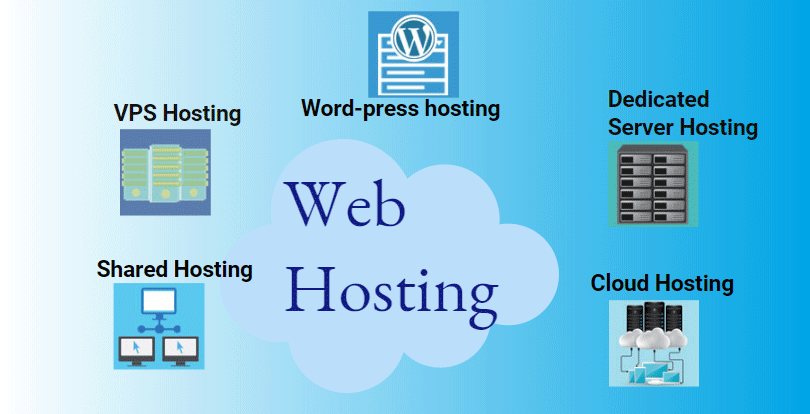Choosing a web hosting provider is one of the most important decisions that you will make in the beginning of your online business. After all, your website is the face of your business. A great web hosting plan will provide you with the resources that you need to build a successful online business.
We’ve all heard horror stories about web hosting, but don’t let them scare you away. While it may be true that not all web hosts are created equal, there are good ones and bad ones. The good ones are easy to use and offer great customer service.
The bad ones are the opposite – they’re difficult to use and not very friendly. It’s up to you to find the perfect balance of price, ease of use, and customer support.
Web hosting is the foundation of any website and the first step in creating a successful online business. This is one of the most important decisions you will make when starting your own business. You have to decide on a web hosting plan.
There are three main types of web hosting: shared hosting, VPS and dedicated hosting.
Shared Hosting
Shared hosting is the most popular type of hosting for small businesses. If you’re a new business with a small budget, you’ll most likely choose shared hosting. It’s cheap and affordable, but there are some drawbacks.
The shared hosting plan is also one of the most affordable hosting packages. It is a good option for beginner webmasters who don’t need a lot of features.
Shared hosting plans usually offer basic features such as email, a domain name, and a website builder. But if you don’t need a lot of space or features, this may be the right hosting plan for you.
Shared hosting plans usually come with unlimited bandwidth and disk space. This means you can upload as much content as you want without worrying about your monthly bandwidth usage.
Offshore Hosting
Offshore Hosting is a hosting service that is located in a different country than the one in which you reside. Its also known as DMCA Ignored Hosting
Offshore Hosting is a popular choice for many reasons. One is that it allows you to cut down on expenses, as there are less overhead costs involved. Another is that it makes your website accessible to a larger audience.
VPS Hosting
VPS hosting is a powerful web hosting option that allows you to scale your website across multiple servers without having to deal with sharding.
This is a best-of-both-worlds scenario. You get the advantages of dedicated hosting with none of the drawbacks. VPS hosting provides the benefits of a dedicated server without the high costs.
VPS hosting is the most versatile of the three options. This makes it ideal for growing businesses who need flexibility, but don’t want to spend a lot of money on dedicated hosting.
Dedicated Hosting
If you’re looking for a fast and stable web hosting solution, a dedicated server is what you need. This is the ultimate solution if you want to host multiple websites at once or you just want the best performance.
You can choose between Linux or Windows operating systems. Windows servers are more common than Linux, but Linux offers a more powerful platform for your websites. In addition, you can easily install different applications on your server and add your own custom scripts and software.
RDP ( Remote Desktop Protocol)
The Remote Desktop Protocol (RDP) is an application-level protocol used to control a remote computer over a network. It is similar to Terminal Services for Windows.
Cpanel License for Hosting
CPanel is a software package that is used to manage a website. It’s very powerful and is the backbone of any website. There are two versions of CPanel: Standard and Premium.
CPanel Standard is a free version of the package which provides basic features. You can only install one website on this version.
Cheap cPanel License is a paid version of the package. It includes more advanced features such as multi-domain hosting, automatic updates, and support for multiple websites on one account.
Conclusion:
First, how much do you want to spend? Do you plan to spend less than $100 a month, or are you willing to spend more than $300 per month? You don’t have to spend a lot of money if you’re just getting started, but it will be difficult to scale your business without spending some money on web hosting.
And finally, what features do you need? What kind of functionality do you need from your web hosting? Do you need a database? Do you need multiple email addresses? Do you need FTP access?
The more you learn about what you really need from a hosting provider, the better off you’ll be. If you don’t know what you need, the wrong provider could cost you a lot of time and money.



